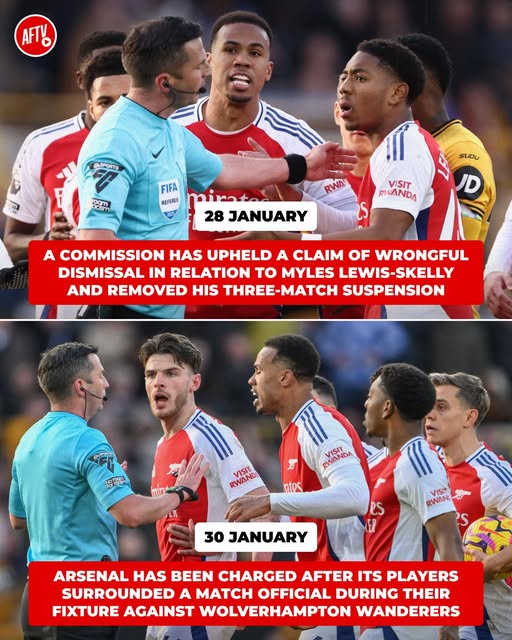Sunday’s referee likes home wins, sees few fouls and waves lots of cards

Peter Bankes is the referee for the upcoming match between Arsenal and Manchester City. This will be his 20th match of the season, including games from the Premier League and various cup competitions. This season, he has already officiated seven Manchester City matches, including the one where Manchester City lost to Aston Villa. Comparing Bankes to other referees helps us understand how differently each referee handles matches. We are not saying every referee should be the same, but sometimes, the number of fouls, penalties, and yellow cards they give out seems too high or inconsistent. There should be more balance in how referees make decisions.
For example, Referee Darren England sees 21% more fouls than Peter Bankes. When it comes to penalties, Anthony Taylor awards over four times as many as Darren England. As for yellow cards, Peter Bankes gives out 20% more yellow cards than Anthony Taylor. This inconsistency makes it feel like teams need to study each referee before matches. Some clubs might even have people assigned to analyze referees and brief the players on how to behave in front of each one. But this is not how football should work. Players should follow the same rules regardless of who the referee is. The laws of the game should guide behavior, not the referee’s personal style.
When we look at the stats, Anthony Taylor has officiated 21 games with an average of 21.52 fouls per game, 0.43 penalties per game, and 3.38 yellow cards per game. Peter Bankes has overseen 14 games with 19.36 fouls per game, 0.36 penalties per game, and 4.07 yellow cards per game. Stuart Attwell has managed 12 games with 19.92 fouls per game, 0.17 penalties per game, and 3.83 yellow cards per game. Darren England has refereed 10 games with 23.60 fouls per game, 0.10 penalties per game, and 3.90 yellow cards per game. There’s a clear range here, showing big differences in how each referee handles fouls, penalties, and cards.
This is important because clubs like Chelsea and Southampton receive almost double the number of yellow cards compared to Brentford and Tottenham. Arsenal ranks 14th in the league for yellow cards when we consider all reasons. But teams that get Peter Bankes as a referee more often tend to receive more yellow cards because he gives them out frequently.
Another strange thing is the category of yellow cards given for “other” reasons. I’ve been asking what this category means, but there’s no clear answer. Interestingly, since I started raising this question, the number of yellow cards given for “other” reasons has gone down. Arsenal used to get a lot of these unexplained yellow cards, but now they have 23 this season, which puts them second behind Chelsea. It’s still puzzling because no one can explain what these “other” reasons are.
What’s even more confusing is that Arsenal is 18th in the league for yellow cards given for fouls, with about half as many as Southampton, the team with the most. Despite this, Arsenal keeps getting yellow cards for mysterious “other” reasons. Why does this keep happening? No one seems to know, and that’s why we write so much about referees and the Professional Game Match Officials (PGMO). The media rarely talks about this, and it feels like they ignore these issues.
Now, back to the game. Peter Bankes is the referee, but given the lack of explanations for some of his decisions, it feels strange to even call him that without quotation marks. A real referee’s actions should be clear and easy to explain. We’ve looked at how games turn out under different referees. Some referees seem to favor home teams, others favor away teams, and some see a lot of draws in their matches.
For example, Anthony Taylor has officiated 21 games this season, with 19% of those being home wins, 57.1% away wins, and 23.8% draws. Chris Kavanagh has managed 15 games, with only 6.7% home wins, 20% away wins, and a massive 73.3% ending in draws. Peter Bankes has overseen 14 games, with 57.1% home wins, 35.7% away wins, and just 7.1% draws. John Brooks has officiated 11 games, with 81.8% home wins, 9.1% away wins, and 9.1% draws. Darren England has refereed 10 games, with 30% home wins, 50% away wins, and 20% draws.
Peter Bankes seems to favor home wins, though not as much as John Brooks. Brooks has an incredibly high percentage of home wins, which means if your team is playing at home with him as the referee, you’re 13 times more likely to win than if Chris Kavanagh were in charge. Bankes doesn’t seem to like draws much, as he has the lowest percentage of draws among these referees. Kavanagh, on the other hand, sees 10 times as many draws as Bankes.
If the PGMO ever made public statements (which they don’t), they’d probably say this is just how things happen. But imagine if this happened in real life outside of football. What if you were wrongly accused of a crime, and your lawyer said, “Don’t worry, you’ve got Judge Brooks. He lets everyone go free.” Or worse, “Sorry, you’ve got Judge Bankes. You’re definitely going to prison.” If that were the case, people would lose faith in the justice system. But in football, this kind of inconsistency with referees is just accepted, and the media never talks about it. The PGMO doesn’t even have a website where people can discuss these issues.
When we consider all of this, it’s clear why people get frustrated with referees and the way matches are managed. Clubs and fans want fairness and consistency. They want to believe that the rules apply equally to everyone, no matter who the referee is. But the statistics show that this isn’t always the case. Some referees give more cards, see more fouls, or favor home or away teams more than others. This isn’t just random chance. There’s a pattern, and it affects the outcome of games.
Even though football is supposed to be fair, these patterns make people question whether that’s really true. Why should one team get more yellow cards just because of the referee? Why do some referees see more fouls than others in similar situations? And why do some referees rarely have matches that end in a draw? These are questions that don’t have easy answers, but they’re important to ask if we want the game to be as fair as possible.















